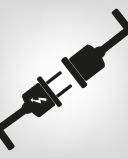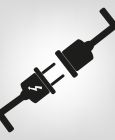Alcoholism
"I Was So Drunk Last Night, I Can't Remember a Thing"
Blackouts are a sign of a serious problem.
Posted November 5, 2018 Reviewed by Jessica Schrader
By John Smith*

The U.S. Senate hearings of Supreme Court nominee Brett Kavanaugh hit a bump when Christine Blasey Ford came forward with the accusation that Kavanaugh had sexually assaulted her in high school. He has no recall of such an event. Who is telling the truth? I found myself aghast: in all of the media coverage, no one suggested that each may be telling the truth about the assault as they knew it.
There is ample evidence that Kavanaugh drank heavily in high school, and there is such a thing as alcohol-induced amnesia called a blackout. This could easily explain the inconsistency in testimonies.
As a physician, I have worked with patients who have experienced alcoholic blackouts, and I believe I have an important perspective to add. However, speaking out in this charged, politicized environment can have professional repercussions, interfere with friendships, and put one at risk for physical harm. For this reason, I decided to write this post anonymously.
An Experience I’ll Never Forget
Kavanaugh’s harsh defensiveness during his testimony brought to mind a patient I met in an ER over 20 years ago who I will never forget. The police brought in a young woman who brazenly disclosed details about how she assaulted another woman at a party. She explained her justification in her attack and proudly detailed how she had won the fight. The police perceived something troubling about this young person and knew she would benefit more from medical help than from a night in jail.
The Shock of Different Realities
Once my patient sobered up, I was in for a shock. I asked her again about the fight. She was not angry, or guilt-ridden, or even indifferent. She was profoundly perplexed. She honestly did not know what I was talking about. Within a few seconds, she began to deny it. And in a way I believed her; she truly seemed to have no memory for the very things she had described in detail a few hours before.
Memory is quite complex. Multiple steps lead to experiences being archived into long term memory. This happens in a primal part of our brain called the hippocampus. In cases of shocking experiences, the memory becomes etched into the mind or “indelible in the hippocampus,” as Blasey Ford referred to in her testimony about her own memory of being assaulted. This happens even in less traumatic, but still emotionally laden, experiences such as when I faced my patient’s changing reality.
Alcohol impairs the encoding of long term memory. Having a couple of drinks may cause someone to forget minor details, such as the name or career of a new acquaintance, for instance. But these blocks of amnesia become larger, even profound, as increasing quantities of alcohol are consumed. This is how someone may wake up and have no recollection of what happened the night before.
My God, What Have I Done?
Would you believe it if you were told you did something so outside your character that it seemed inconceivable? Especially with alcohol-induced aggressive behavior, our mental mechanisms can transition a reaction of, “Oh my God, what have I done?” seamlessly to, “It can’t be. I am an upstanding person who would never do that!”
When I asked my then sober patient why she thought she was in the ER, she seemed stumped. After a moment, she began throwing together a lie. There were hardly any details, and a lot of defensiveness. Most importantly, it had nothing of the razor-sharp detail in her earlier story. Doctors call this confabulation. Kavanaugh’s avoidance of questions about his drinking had this defensive quality, which suggests this phenomenon.
A Couple Of Points To Remember:
- If you can’t remember a stretch of time when you were drinking heavily, question whether the alcohol contributed to this lack of memory. You may have experienced a blackout.
- Alcohol blackouts are a sign of problem drinking, but are often discounted. If you have concerns, ask your doctor or check this CDC information.
- In most cases, a person can be held legally responsible for crimes committed during an alcoholic blackout.
Our minds have powerful defense mechanisms. It can be easy for someone experiencing a blackout to discount what happened during it, and many people hearing Kavanaugh’s testimony accepted his denial of assault. But the question of whether he had blackouts, and whether he may have assaulted Blasey Ford during one, was never answered.
*Name has been changed.
References
Aaron M. White, Ph.D.What Happened? Alcohol, Memory Blackouts, and the Brain. (2004) NIH Publications https://pubs.niaaa.nih.gov/publications/arh27-2/186-196.htm.
J. Dee Higley, Ph.D.Individual Differences in Alcohol-Induced Aggression. NIH Publications https://pubs.niaaa.nih.gov/publications/arh25-1/12-19.htm.




